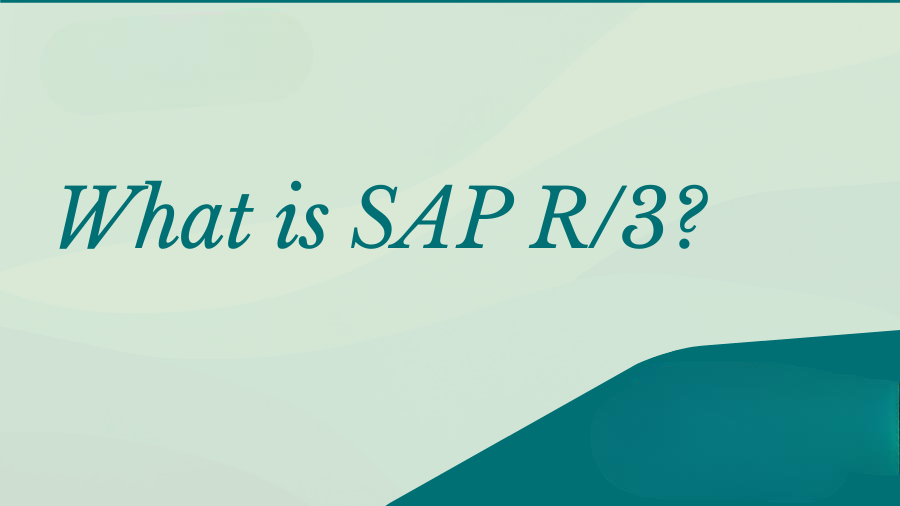What Is A Valuation Class In SAP?

Strong 8k brings an ultra-HD IPTV experience to your living room and your pocket.
Introduction
Within the SAP Materials Management (MM) module, the SAP Valuation Class is a vital part that immediately links material transactions to financial accounting. It allows finance and logistics to work together by determining which general ledger (G/L) accounts are revised when items are received, released, or moved. Valuation classes assist in automating account postings and ensure uniformity in financial reporting by classifying materials such as raw materials, semi-finished, or finished goods. This system improves configuration, lowers human mistakes, and increases transparency and accuracy. Effective inventory valuation and simplified financial processes in an SAP system depend on a clear understanding of the valuation category. Aspiring professionals can check the courses by the Best SAP Training Institute in Hyderabad with Placements for more information. This guide offers a deeper understanding of a Valuation Class in SAP. Read this section to know more.
SAP Valuation Class Overview
The Valuation Class in SAP is a vital part of the Material Management module in SAP. It enables material transactions like goods movement or inventory postings to be use of the general ledger accounts. The automatic account determination in the SAP MM system connects the material type to the G/L accounts. Every material has a valuation class, which then links to a certain account in the OBYC transaction (Account Determination).
This configuration lets SAP automatically record accounting entries during production or procurement. For instance, semi-finished goods, raw materials, and finished goods may each have various valuation categories. This helps SAP in costing the relevant inventory or expense accounts.
Working with valuation grouping codes, transaction keys, and account modifiers, valuation class helps maintain material valuation consistently across corporate codes. This improves financial transparency, ensures precise cost tracking, and simplifies inventory valuation.
How Does It Function?
By establishing which general ledger (G/L) accounts are changed during inventory and procurement operations, the valuation class in SAP helps materials and financial accounting to interact. It is vital for automatic account determination since it guarantees that the financial system accurately records all material actions.
Components Of SAP Valuation
1. Material Master Assignment
The material master record assigns each SAP material a valuation class under the accounting view. The valuation class distributes materials into finished goods, semi-finished goods, and raw resources. This project specifies the financial treatment the system gives the materials.
2. Automatic Account Determination (OBYC)
The system is set to connect valuation categories to G/L accounts in the OBYC transaction. This is achieved with:
• Transaction keys include WRX for GR/IR clearing and BSX for inventory posting.
• Valuation grouping code (to distinguish configurations for different companies or plants)
• Optional account modifier used for more thorough control
3. Posting Logic during Transactions
SAP acts when a transaction, such as a goods receipt or invoice posting, is carried out:
• Finds the valuation category of the material involved.
• Utilizes the transaction-related key (e.g., BSX for stock posting).
• Cross-references OBYC setup to determine the appropriate G/L account depending on the valuation class and valuation area.
• Automatically posts the accounting document to the mapped G/L account.
4. Flexibility and Control
One valuation class may be given to several materials; if necessary, several material kinds can share the same valuation class. This offers freedom but preserves regular financial postings.
5. Valuation Area
Depending on system configurations, the valuation area, which may be at the plant or business code level, works with the valuation class. This has an impact on the way departmental inventory values are handled.
In short, the SAP valuation class guarantees accurate and automatic financial postings for material transactions. Refer to the SAP Course in Chennai with Placement to learn more about SAP valuation. By mapping material kinds to pertinent G/L accounts depending on specified criteria, it connects finance and logistics, thereby improving system efficiency and financial correctness.
Why Is SAP Valuation Class Necessary?
SAP Valuation Class is essential for automatic, accurate, and consistent financial accounting of material transactions inside the SAP system. Linking logistics with finance, the automatic account determination process forms the core of materials management, making financial integration essential in these fields.
1. Automatic Account Posting
SAP must record these to the appropriate general ledger (G/L) accounts every time a material transaction like goods receipt, goods issue, or invoice receipt occurs. Based on the transaction type and material engaged, the valuation class decides which G/L account is picked for the posting. Every transaction would otherwise need manual account entry, which would cause inefficiency and human mistake.
2. Financial Transparency and Accuracy
Classes of valuation help in keeping precise cost tracking for various kinds of materials. For example, different inventory accounts might apply to raw materials, semi-finished goods, and finished goods. Giving these materials particular valuation categories helps businesses accurately record inventory value and cost of products sold in financial statements.
3. Simplification and Flexibility
By lowering the number of account determination rules needed, valuation classes help simplify the system configuration. If several materials are posted to the same G/L accounts, they can share the same valuation class. This increases system flexibility and lowers configuration complexity.
4. Control and Standardization
Valuation categories help ensure consistent financial approach throughout comparable material types or business divisions. It guarantees adherence to internal and external audit standards, helps companies keep consistent accounting methods, and lowers posting variance risk.
5. Integration Across Modules
Integration of SAP MM (Materials Management), FI (Financial Accounting), and CO (Controlling) is helped by valuation classes. This integration guarantees that material moves not only reflect inventory but also mirror precisely in financial and cost accounting.
Thus, tasks like automated financial postings, improved accounting accuracy, easier system setup, and standardized, auditable operations throughout the company depend on the SAP valuation class. One can refer to the courses by the SAP Institute in Noida to learn more about SAP valuation class. Since it is the foundation of SAP's integrated enterprise resource planning system, it is essential for connecting materials movement with financial records.
Conclusion
SAP Valuation Class is a basic component that links materials management with financial accounting. It groups similar materials under a single financial treatment. This simplifies configuration, supports cost tracking, and guarantees accurate G/L postings during commodity transactions. Furthermore, it improves operational efficiency and financial openness by making standardized and auditable procedures available. Its involvement with modules like MM, FI, and CO helps emphasize the unified character of SAP's ERP system. Valuation class is important for simplifying inventory valuation, maintaining compliance, and promoting wise decision-making across the organization.
Note: IndiBlogHub features both user-submitted and editorial content. We do not verify third-party contributions. Read our Disclaimer and Privacy Policyfor details.




